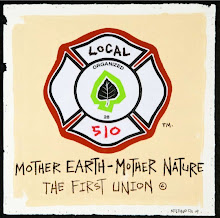
The Meaning of Intelligence
An expansive reflection on work, education, and civic imagination with Mike Rose. He is an esteemed researcher and teacher at UCLA and a poetic writer. We explore his perspective, through life and scholarship, on hard subjects that drive to the heart of who we are — literacy, schooling, social class, and the deepest meaning of vocation.
Krista Tippett, host of Speaking of Faith
Valuing Intellectual Depth and Its Relationship to Work and Life in All Its Forms
I was hooked by the opening lines of Mike Rose's lovely book, The Mind at Work:
"I grew up a witness to the intelligence of the waitress in motion, the reflective welder, the strategy of the guy on the assembly line. This, then is something I know: the thought it takes to do physical work. Such work put food on our table, gave shape to stories of affliction and ability, framed how I saw the world … I've been thinking about this business of intelligence for a long time: the way we decide who's smart and who isn't, the way the work someone does feeds into that judgment, and the effect such judgment has on our sense of who we are and what we can do."
Mike Rose grew up in an immigrant family in the center of Los Angeles; I grew up in a small town in the melting pot of Oklahoma. I did not grow up around much physical work, but I did attend a school where advanced classes in languages, math, and science were axed to sustain a strong football team. His story of his late discovery of the strength of his own mind, and, even later, grasping the forms of intelligence he had known without appreciating, sparked all kinds of longing and recognition in me. Our stories taken together are disparate but kindred facets of a schizophrenia in the American story that thrives, largely unexamined, in our public life. Despite our national history of exceptional intellectual achievement, we also harbor what the historian Richard Hofstadter classically observed as a "national distaste for intellect."
This takes the form of a defiant bias against "book learning" where I grew up. Joe Six-Pack is, after all, a descendant of Thomas Jefferson's "common man." Sarah Palin strums these guitar chords powerfully, as Mike Rose points out — a phenomenon that learned commentators deride but fail to understand. For the other side of our schizophrenia is a learned dismissal of the cognitive accomplishments of "average" people, working people, summed up in a phrase like manual labor.
Mike Rose can demonstrate the error of such dismissiveness with hard research. But his concern goes deeper than that and is relevant to us all. Failing to see and nurture the intellectual and civic substance of all kinds of work, he worries, is profoundly undemocratic. It limits our collective vision and range of action from school reform to social planning. We shape educational policies with economic competitiveness in mind; we don't ask what kind of education befits a democracy. Mike Rose asks this question through his life story and in his scholarship, and speaking with him leaves me at once nourished and challenged.
This conversation with Mike Rose is more about intelligence and its relationship to work and life than it is about schooling per se, though he also offers very fresh and provocative observations on standardized testing and on what we might collectively learn from the controversial experience of No Child Left Behind.
Working on this program strummed some guitar chords already resonating in me and my colleagues after our show last fall titled "Learning, Doing, Being" with neuroscientist Adele Diamond. Many of you responded passionately to that show, and Mike Rose helps explain that response, I think. He calls forth — in a way we rarely do in our society, even in discussions about educational policy — the life-changing memories so many of us can summon of school or of teachers or of moments of reading or learning when our minds came alive; and how such moments formed who we wanted to be, who we are. We've gathered those insights on our website and would love to add yours.
The Mind at Work by Mike Rose
I Recommend Reading:
The Mind at Work: Valuing the Intelligence of the American Worker
by Mike Rose
This refreshing, wonderfully written examination of beliefs about the mind explores blue-collar vocations and offers ample opportunity for the reader to reevaluate one's assumptions about the complexity of thinking that takes place as a hairdresser snips a lock, a waitress juggles multiple tables and orders, a carpenter problem-solves on site.
*This article is entirely the property & contents of the American Public Media Newsletter
Monday, August 30, 2010
The Meaning of Intelligence
Posted by
la fin du siècle
at
2:24 PM
0
comments
![]()
Labels: Being, Democracy, intellgience, Krista Tippett, work
Subscribe to:
Comments (Atom)




























